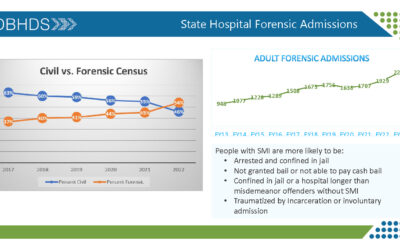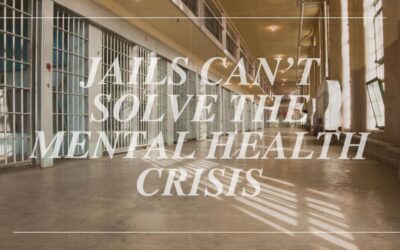The National Mental Health Association first proclaimed May to be Mental Health Awareness Month in 1949, to bring mental health out of the shadows and into the everyday language of health. Over 70 years later the increase in public awareness is substantial, yet in some ways our collective mental health is in decline.
For many years prior to the pandemic, there was a gradual increase in the suicide rate and other indicators of mental distress. The pandemic’s wake left a second wave of public health crisis, with its lingering impacts on our mental health from the individual and collective trauma of living through prolonged isolation, loss and grief.
While some mental health indicators are in decline, there has been substantial progress in “normalizing” mental health. More people freely talk about it, and about their own mental health challenges. Particularly among many young people, mental illness no longer carries the stigma that prevents so many individuals from reaching out for help to feel better.
This de-stigmatization of mental illness is not entirely an altruistic shift. The sheer numbers of people in crisis across the country has forced us to name the problem and talk about it. So it is for both good and bad reasons that mental health challenges are more in the open today than ever before. It may be that the increased openness has led to more people identifying a mental health problem and asking for help.
Mental Health Month news from two very different professions exemplifies the trend towards broader awareness that mental health is vital to our health.
Farmers are 3.5 times more likely to die by suicide than the general population, and the American Farm Bureau Federation is helping farmers cope with stress and depression. Farmers can call or text the AgriStress Helpline at 833-897-2474 to speak directly with a healthcare professional. The Virginian Review reports that: “A 2021 AFBF survey suggests that stigma surrounding mental health among rural adults has decreased by 11% since 2019, but 61% of the 2,000 rural adults surveyed still agree it is an obstacle to seeking help.”
Other professional groups across the country have identified stress, depression, and substance use as indicators of serious threats to the health of their members, and elevated the conversation about mental health. Even lawyers are prioritizing their mental health. From the Institute for Well Being in Law, we learn that “Well-Being Week in Law” is held each year during the first full week of May to “…raise awareness about mental health and encourage action and innovation across the profession to improve well-being,” according to the institute’s website. The graphic below from their website could support any profession. https://lawyerwellbeing.net/
“Look Around, Look Within” – MHA’s 2023 Mental Health Month toolkit includes information about how an individual’s environment impacts their mental health, suggestions for making changes to improve and maintain mental well-being, and how to seek help for mental health challenges. https://mhanational.org/mental-health-month.
Let’s hope next year the trend lines diverge, so that we see even more mental health awareness, and fewer people in crisis and distress.

Graphic from the Institute for Well Being in Law website https://lawyerwellbeing.net/



